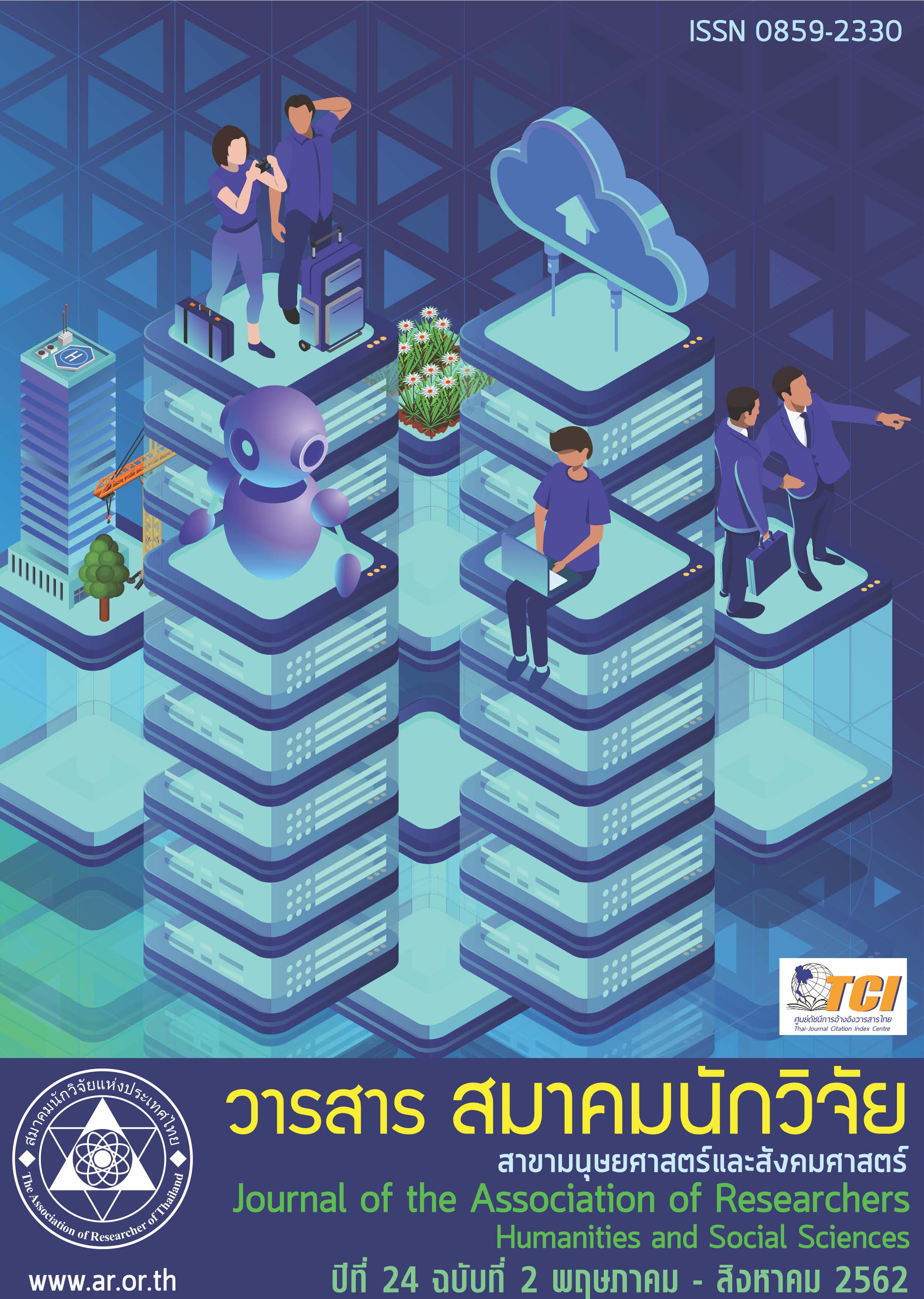The Multiple Mediation Effects of Job Creativity on Transferring Organizational Culture to Job Performance of the Staff of the Thai Silk Industry in Bangkok
Main Article Content
Abstract
In this research, the researcher studies organizational culture, job creativity (fluency, flexibility, originality, elaboration), and job performance. The researcher examines influence of job creativity (fluency, flexibility, originality, elaboration) in multiple mediating organizational culture with job performance of the staff of the Thai Silk Industry in Bangkok. In the quantitative phase of investigation, the researcher deployed a survey research methodology. The research samples population included 195 samples of the staff of the Thai Silk Industry in Bangkok. Using a questionnaire as a research instrument to collect data, the researcher distributed copies of the questionnaire to the members of the sample population. All copies were returned to the researcher. Using techniques of descriptive statistics, the researcher analyzed the data collected in terms of percentage, mean and standard deviation. Furthermore, the researcher employed structural equation model (SEM) analysis by virtue of using the Partial Least Square SmartPLS 2 computer software application. The research results revealed that organizational culture, job creativity (fluency, flexibility, originality, elaboration), and job performance showed overall means at a high level. The results obtained by the structural equation modeling analysis of factors influencing job performance revealed that 1. influences job creativity (fluency, originality, elaboration) as the mediating exhibited correlation between organizational culture and job performance and 2. influences job creativity (flexibility) as the mediating exhibited no correlation between organizational culture and job performance.
Article Details
บทความที่ปรากฏในวารสารนี้ เป็นความรับผิดชอบของผู้เขียน ซึ่งสมาคมนักวิจัยไม่จำเป็นต้องเห็นด้วยเสมอไป การนำเสนอผลงานวิจัยและบทความในวารสารนี้ไปเผยแพร่สามารถกระทำได้ โดยระบุแหล่งอ้างอิงจาก "วารสารสมาคมนักวิจัย"
References
Naserinajafabady, R., Rangriz, H., & Mehrabi, J. (2013). Effects of organizational culture, structure and strategy on organizational effectiveness by using knowledge management case study: Seven International Transportation Company. International Research Journal of Applied and Basic Sciences, 7(6), 355-361. Soori, Z., & Ferasat, H. (2016). The relationship between creativity and job performance khorramabad municipal departments. Journal of Applied Environmental and Biological Sciences, 6(3S), 192198. Uddin, M. J., Luva, R. H., & Hossian, S. M. M. (2013). Impact of organizational culture on employee performance and productivity: A case study of telecommunication sector in Bangladesh. International Journal of Business and Management, 8(2), 66-77. Vasudevan, H. (2013). The influence of emotional intelligence and creativity on employee’s work commitment and performance. International Journal of Management and Business Research, 3(3), 233-255. Yamana, T. (1973). Statistics: An introductory analysis. (3rd ed.). New York: Harper and Row.
Translated Thai Reference
Boonyoo, T., Rungruangwuddikrai, N., Piriyakul, M. & Khantanapha, N. (2016). Serial mediated effects of intellectual capital and entrepreneurship in transmitting organizational culture to performance of Bus Body Industry. Doctor of Philosophy in Social Sciences Association Ramkhamhaeng University, 6(1), 78-94. (In Thai). Office of Industrial Economics. (2014). 72th Anniversary Ministry of Industry, Identity & Innovation of Thai Silk to International. OIE SHARE, 3(31), 3-6. (In Thai). Sirikase, B. (2017). A study of constructive organizational culture and learning organization in Makamakut Buddhist University, Srilanchang Campus. Journal of the Association of Researchers, 22(2), 65-80. (In Thai).


